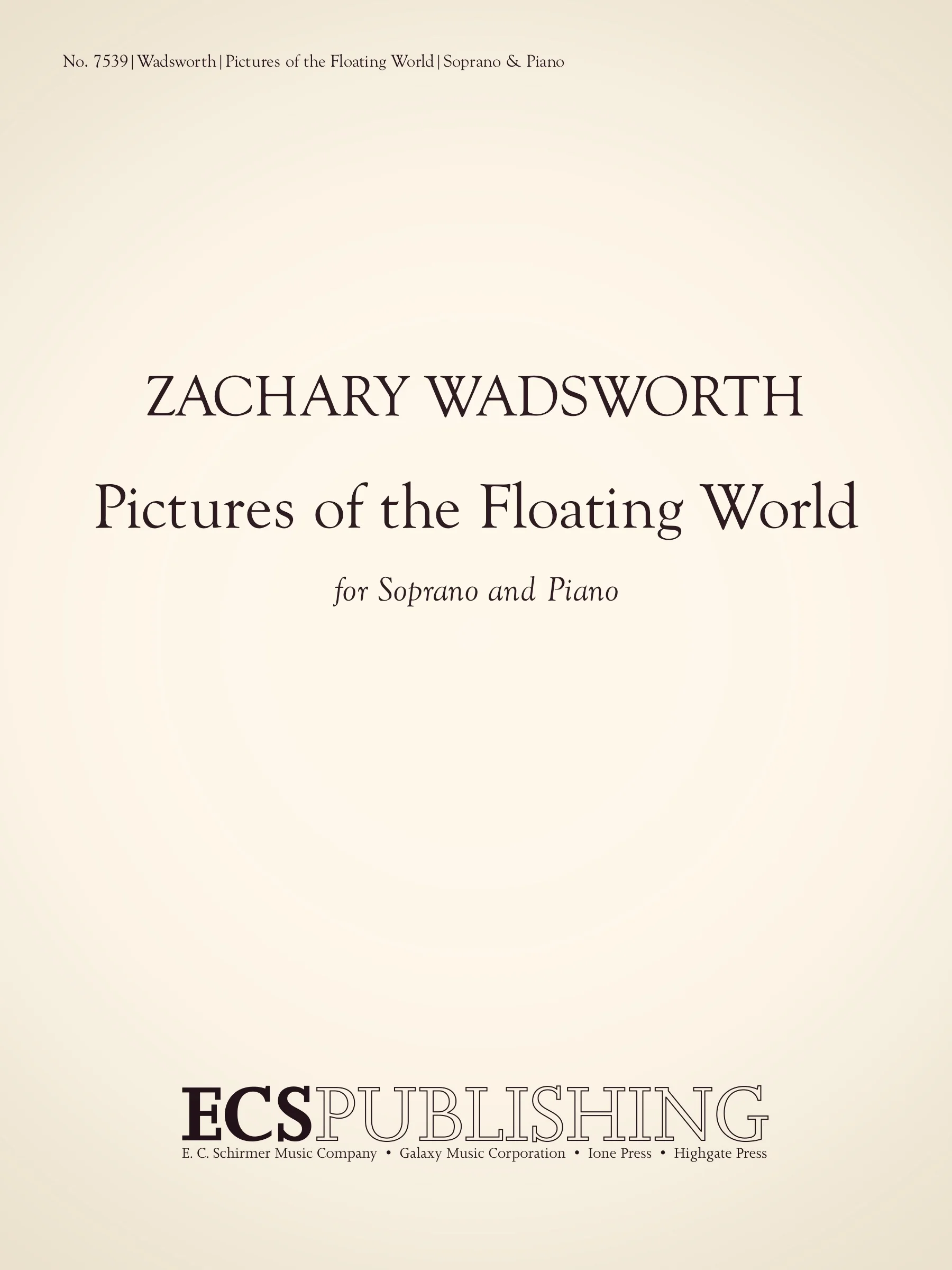Pictures of the Floating World
Pictures of the Floating World
a song cycle for soprano and piano (18')
“In keeping with the impressionistic style of the poetry, the composer has used impressionistic musical material to good effect… This exquisitely beautiful cycle happily looks more difficult on the page than it really is.”
Commissioned as a result of first prize in the 2007 ASCAP / Lotte Lehmann Foundation Art Song Competition
in six movements
Completed in August, 2008. Revised in August, 2009.
Commissioned by the Lotte Lehmann Foundation, Linn Maxwell, President. World premiere on February 14, 2009 by Katharine Dain (soprano) and Jeanne-Minette Cilliers (piano) at the Lincoln Center Library, New York. The premiere of the revised versioin took place on April 9, 2010 at Rice University, with Annamarie Zmolek (soprano) and Zachary Wadsworth (piano).
Text: from Pictures of the Floating World and Sword Blades and Poppy Seed by Amy Lowell (1874-1925)
Published: E.C. Schirmer Music Company #7539. Also included in "Collected Songs for Soprano and Piano," E. C. Schirmer #8270.
LISTEN
These recordings are from a live performance of the cycle by Annamarie Zmolek (soprano) and Zachary Wadsworth (piano) at Rice University on April 9, 2010.
IV. Storm-Racked:
V. Aubade
Program Note
An avant-garde poet at the forefront of the imagist movement, a pacifist, and, likely, a lesbian, Amy Lowell is a unique and unforgettable voice from the beginning of the twentieth century. In Pictures of the Floating World, several of her poems are formed into a song cycle that examines aging, powerlessness, love, and loss.
The first song, “The Garden by Moonlight,” uses a lush garden as the backdrop for deeper questions about age and family. Throughout the song, thick harmony in the piano provides a lush backdrop for a wandering vocal line. Next, “Opal” erupts with the lowest and highest notes on the piano played simultaneously, which evoke the “ice and fire” of conflicted love.
“September, 1918” marks a turning point in the cycle as war invades the quiet gardens of the work’s opening. Here, Lowell wonders whether the “broken world” will ever resolve into peace. After a brief tonal oasis in the middle of the song, the music ends with just as much doubt on a single, lonely B-flat. “Storm-Racked” continues the wartime theme, asking how an artist can “sing” while the world churns with such destructive turmoil.
In “Aubade,” the cycle returns to questions of love. Here, Lowell explicitly describes how she would strip away any trappings to fully see and know her unnamed “beloved.” Set in a simple and Romantic E major, the song opens and closes with long solo piano sections which provide a broad space for Lowell’s expansive eroticism.
“A Dream in Wartime,” is a funereal end to the work. As Lowell digs a grave, she realizes that it is for herself, writing: “My own face lay like a white pebble, / Waiting.” We will never know whether she is waiting for death, waiting for a time when war would cease, or waiting for a time when her “beloved” could be named openly. But in the quiet ending to the cycle, we are invited to ponder the passage of time, the pursuit of peace, and the embrace of all forms of love.
